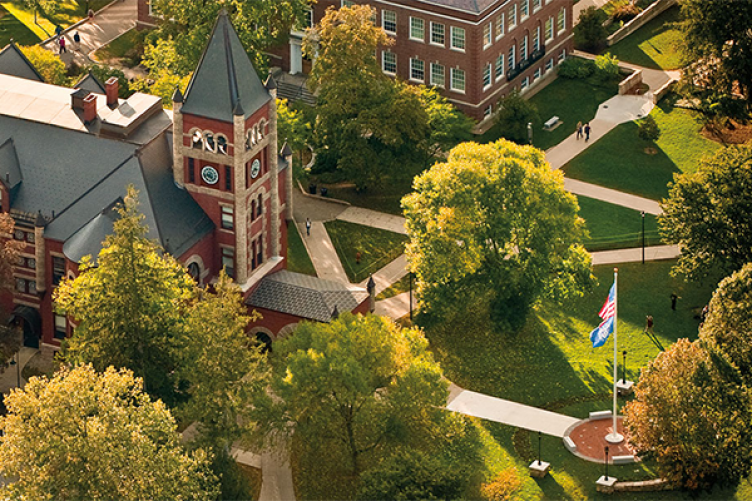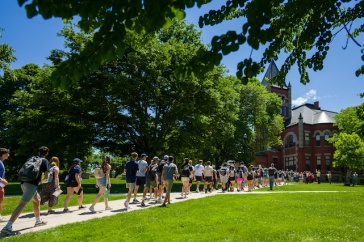
University of New Hampshire graduates are more likely than peers from other U.S. colleges to have full-time employment, engage in their work and thrive in all five elements of well-being, according to a survey conducted by Gallup this year.
In fact, according to Dan Sinnot, senior consultant with Gallup, “UNH grads are much more likely to be engaged in their jobs than graduates from large public universities. And they are even more engaged than graduates from the Top 50 universities in the U.S. News & World Report rankings (48 percent vs. 41 percent respectively)."
The survey, commissioned by UNH as part of a renewed focus on students’ professional success after college, included members of 55 graduating classes between 1960 and 2014 from colleges and universities across the country. More UNH respondents are employed full-time and report being engaged at work (48 percent) than alumni of other large public universities (39 percent) and the national average (39 percent). Additionally, the overall well-being of UNH graduates, as measured by thriving in all five elements (purpose, social, financial, community and physical), is better than that of their peers.
“UNH is among the first wave of colleges and universities engaged in this research with Gallup measuring the long-term success of college graduates in finding satisfying careers and living healthy, rewarding lives,” says UNH President Mark Huddleston. “It is critical that we have this type of data as we work to strengthen efforts to prepare our students for lifelong success.”
Gallup and Purdue University developed the first national survey to measure long-term success, and to provide a measure of educational success that is more meaningful than job placement and compensation metrics alone.
UNH graduates outperformed university graduates nationwide on several key measures of the survey:
Nearly four in five (79 percent) of the most recent UNH alumni are employed full time, a rate higher than for college graduates nationally and graduates of large public universities (65 percent for both).
UNH alumni are the most likely to report studying with professors who made them excited about learning (67 percent), higher than the percentage among alumni of other large public universities (60 percent) and the national average (63 percent).
UNH alumni are more likely than graduates nationally and those from large public universities to be thriving in all five elements of well-being: purpose, social, financial, community and physical. Overall, 16 percent of UNH graduates are thriving in all five areas compared with 10 percent in the national survey and 10 percent for other large public universities.
“This is a wonderful validation of what we have suspected — that our alumni are thriving,” says Deborah Dutton, vice president for advancement at UNH. “We can be incredibly proud as an institution, that our alumni are ahead of or comparable to their peers around the country in leading rewarding lives and feeling emotionally attached to their alma mater. The results of the survey also present us with clear measures that will help guide us in ensuring every one of our students has access to the resources and support they need to pursue a satisfying career and a better life.”
In tandem with the Gallup survey, UNH is making career preparation and professional success a top strategic priority. A university-wide task force is currently reviewing recommendations for change that will lead to higher internship placements and a higher job placement rate as well as build stronger partnerships with industry. Increasing student support and opportunities for experiential learning were two areas of growth identified through the Gallup survey.



















































